
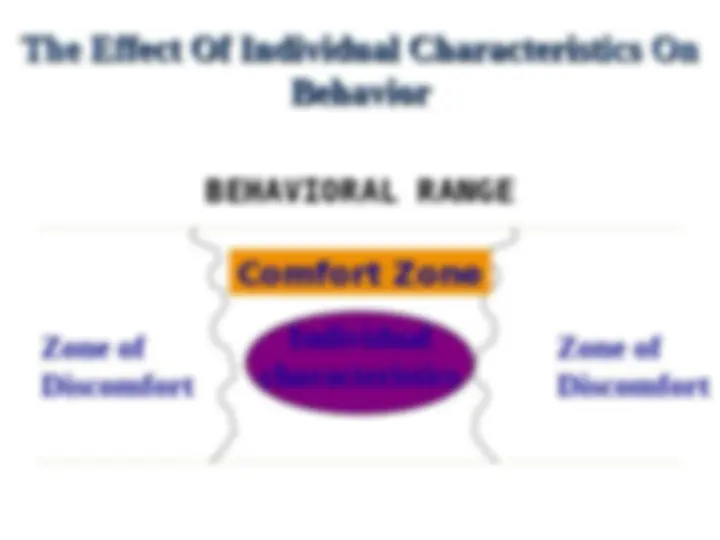
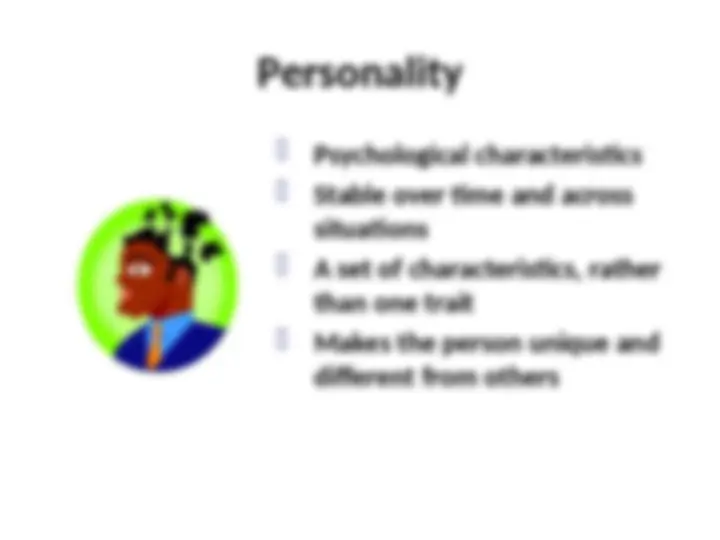
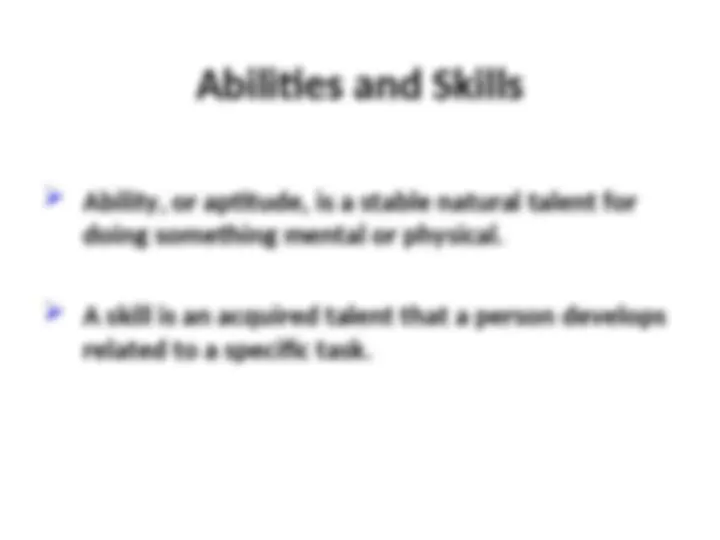
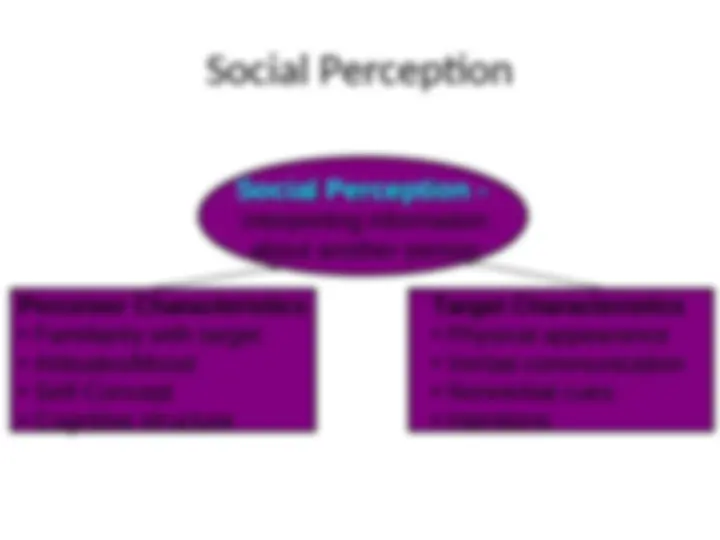
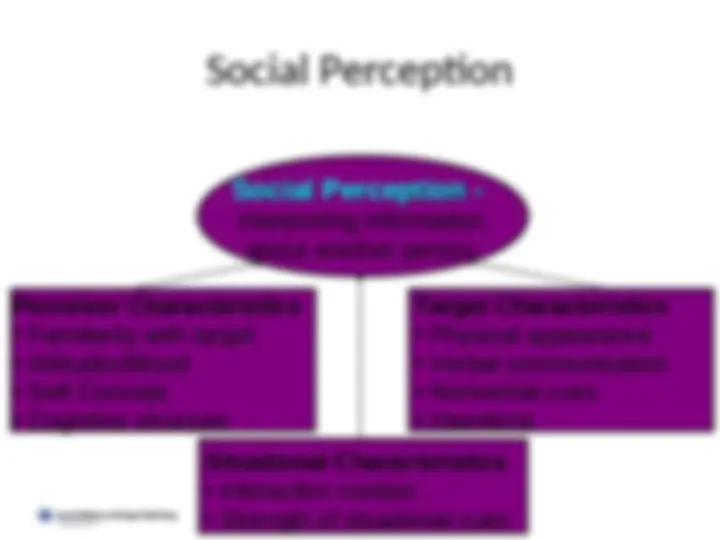
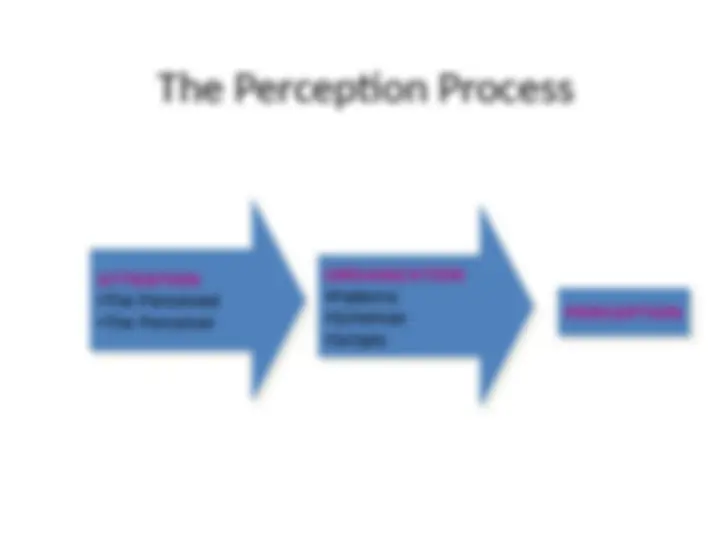
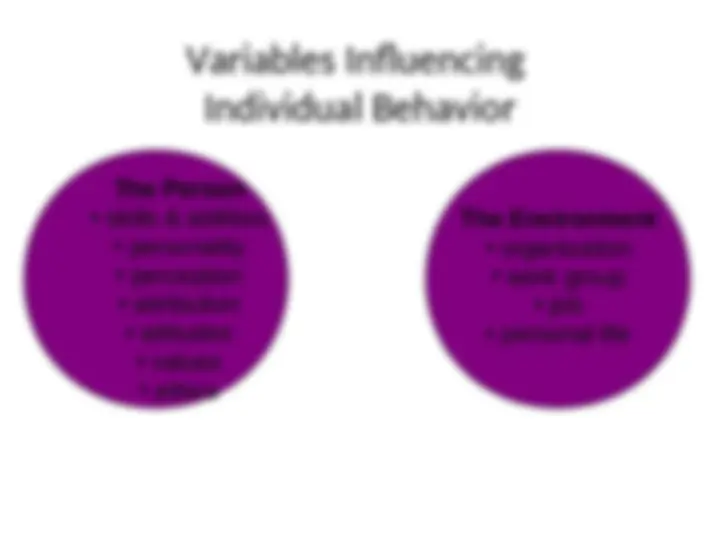
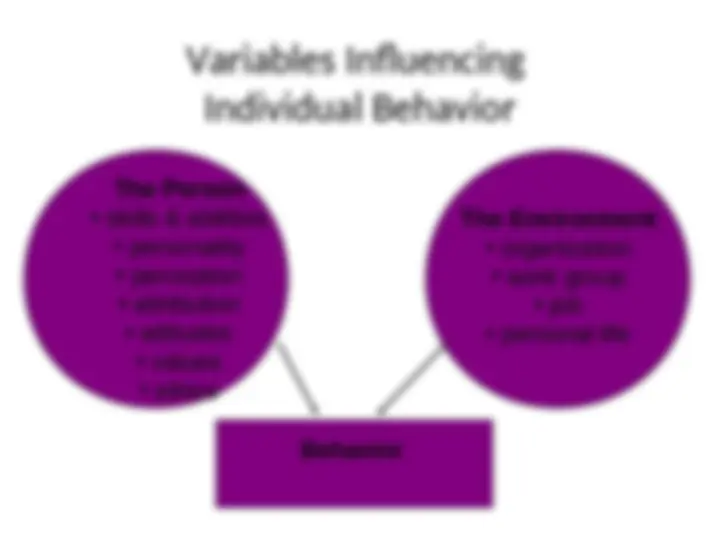
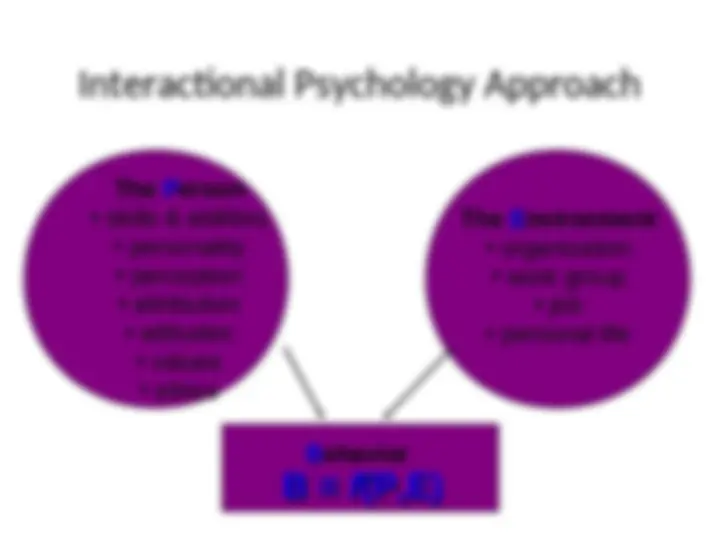
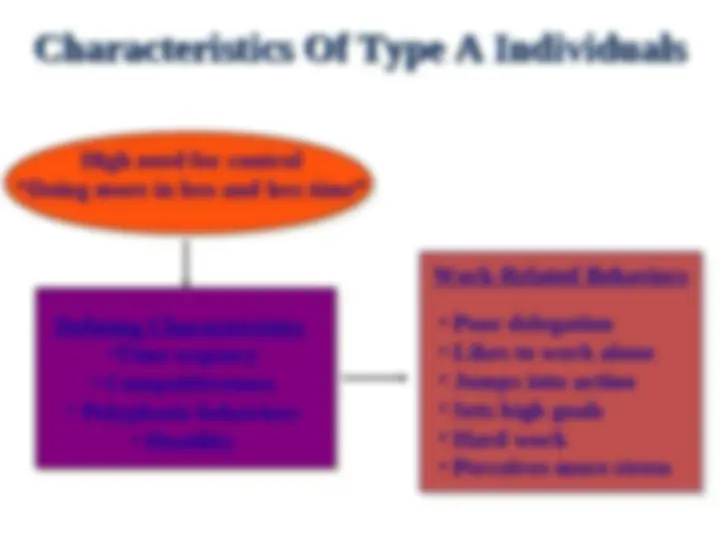
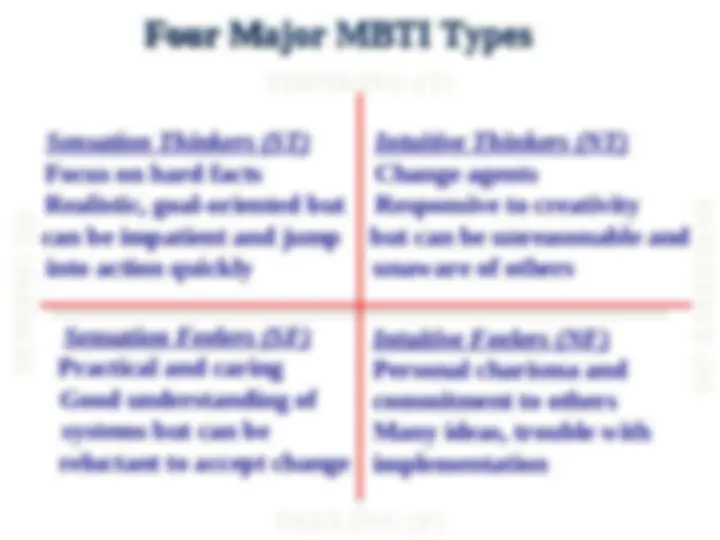
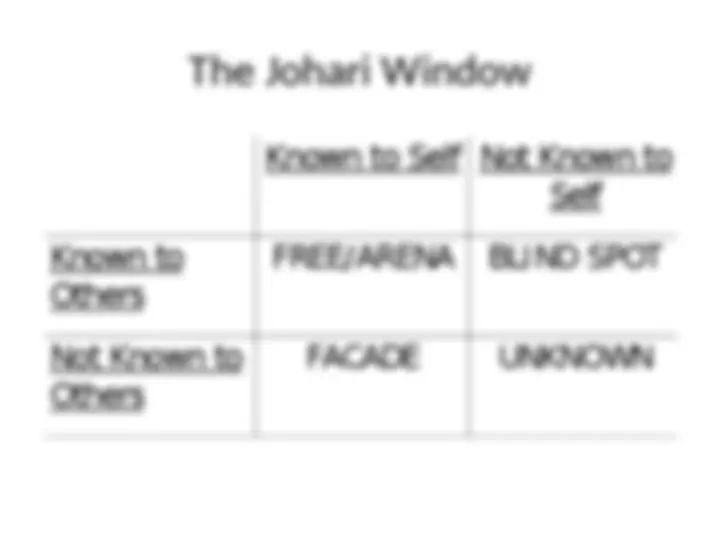


Study with the several resources on Docsity

Earn points by helping other students or get them with a premium plan


Prepare for your exams
Study with the several resources on Docsity

Earn points to download
Earn points by helping other students or get them with a premium plan
Community
Ask the community for help and clear up your study doubts
Discover the best universities in your country according to Docsity users
Free resources
Download our free guides on studying techniques, anxiety management strategies, and thesis advice from Docsity tutors
Individual Differences and Traits
Typology: Slides
1 / 20

This page cannot be seen from the preview
Don't miss anything!













Individual Differences Framework
Individual Differences Framework
Personality
Personality
Leadership Style and
Leadership Style and
Behaviors
Behaviors
Abilities &
Abilities &
Skills
Skills
Values
Values
Environment
Environment
Culture & education
Culture & education
Parental Influence
Parental Influence
Physical Environment
Physical Environment
Heredity
Heredity
Genes
Genes
Race/Ethnicity
Race/Ethnicity
Gender
Gender
interpreting information
about another person
Perceiver Characteristics
Familiarity with target
Attitudes/Mood
Self-Concept
Cognitive structure
interpreting information
about another person
Perceiver Characteristics
Familiarity with target
Attitudes/Mood
Self-Concept
Cognitive structure
Target Characteristics
Physical appearance
Verbal communication
Nonverbal cues
Intentions
ATTENTION
ATTENTION
ORGANIZATION
ORGANIZATION
PERCEPTION
PERCEPTION
Trait Theory - understand individuals by breaking down behavior
patterns into observable traits
Psychodynamic Theory - emphasizes the unconscious
determinants of behavior
Humanistic Theory - emphasizes individual growth and
improvement
Integrative Approach - describes personality as a composite of an
individual’s psychological processes
Variables Influencing
Individual Behavior
The Person
skills & abilities
personality
perception
attribution
attitudes
values
ethics
The Environment
organization
work group
job
personal life
The Environment
organization
work group
job
personal life
Behavior
Variables Influencing
Individual Behavior
The Person
skills & abilities
personality
perception
attribution
attitudes
values
ethics
INTUITIVE (N)